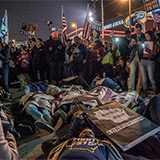
For Millions, the Election was Always Lost
For millions who couldn’t vote, the day after the election was just another day of feeling dispossessed. America under Trump would do well to listen to those who must constantly fight to be heard.


For millions who couldn’t vote, the day after the election was just another day of feeling dispossessed. America under Trump would do well to listen to those who must constantly fight to be heard.

We look at some bright spots from the election, including the story of how a unique labor-community coalition in Arizona helped defeat the reelection bid of the infamous bigot Sheriff Joe Arpaio.
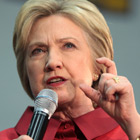
The Trump victory was far from a slam dunk. But it still showed an alarmingly large constituency for a racist, misogynist revolt against the future.
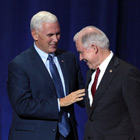
This will likely be seen as one of the most consequential presidential elections in American history—above all, in institutionalizing the GOP as an unchecked vehicle for racism, nativism, anti-Semitism, and misogyny.
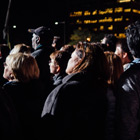
At this moment, it’s hard for me to hope that the Trump presidency and its horrors will mobilize Americans enough. But it must.
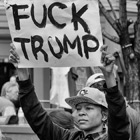
Trump’s America will be a terrifying place. But fear is paralyzing. Rage, channeled appropriately, provides the beginnings of something better: resistance.
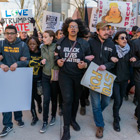
Trump has put us where he put his followers all year: frightened, in a besieged place, a country we do not feel we recognize, in need of a champion. Now we all have to be one another’s champions.
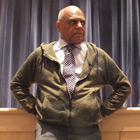
A new biography of key civil rights organizer Bob Moses—who helped spearhead the 1964 Freedom Summer campaign—offers an insightful portrait of a man and a movement whose lessons could not be more relevant today.
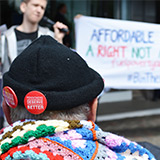
After years of campaigning, London activists recently secured a commitment from the city’s mayor to create a publicly-owned municipal energy company. James Angel of Switched On London explains what energy democracy means in the age of Brexit and Trump.
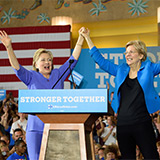
If any kind of “political revolution” is to continue, the choice on November 8 could not be clearer.
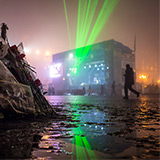
In the early days, the Maidan protests had been something like a people’s national liberation festival. But by 2014, with war erupting in the east, euphoria and solidarity had been replaced by grief and anger.
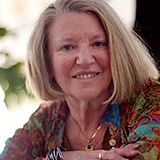
In an interview, Nancy Fraser contends with liberal feminism’s troubling convergence with contemporary capitalism, and offers a radically different vision of gender justice.
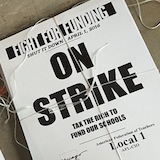
Jane McAlevey joins us to talk about her new book, No Shortcuts, strategies for workplace organizing, and what’s wrong with Saul Alinsky.
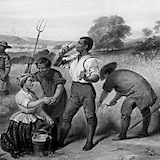
An interview with Matthew Karp about his book, This Vast Southern Empire, and the international politics of American slavery.
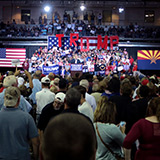
The resurgence of ugly, authoritarian nationalism has renewed a strain of anti-democratic commentary among allegedly enlightened intellectuals. But this retreat to elitism will only empower the demagogues.